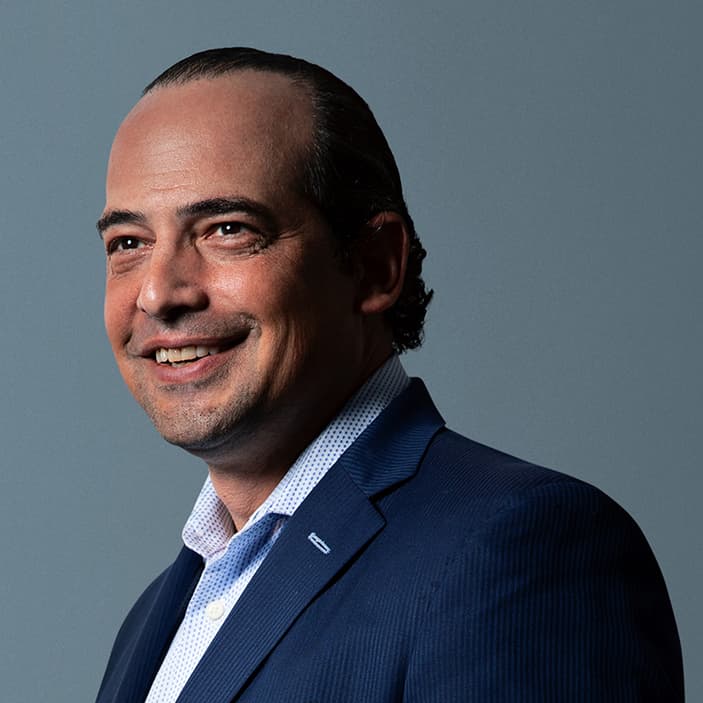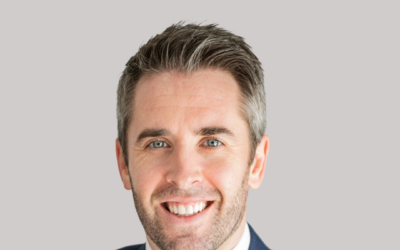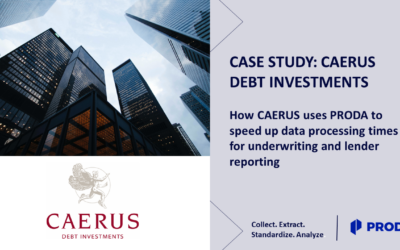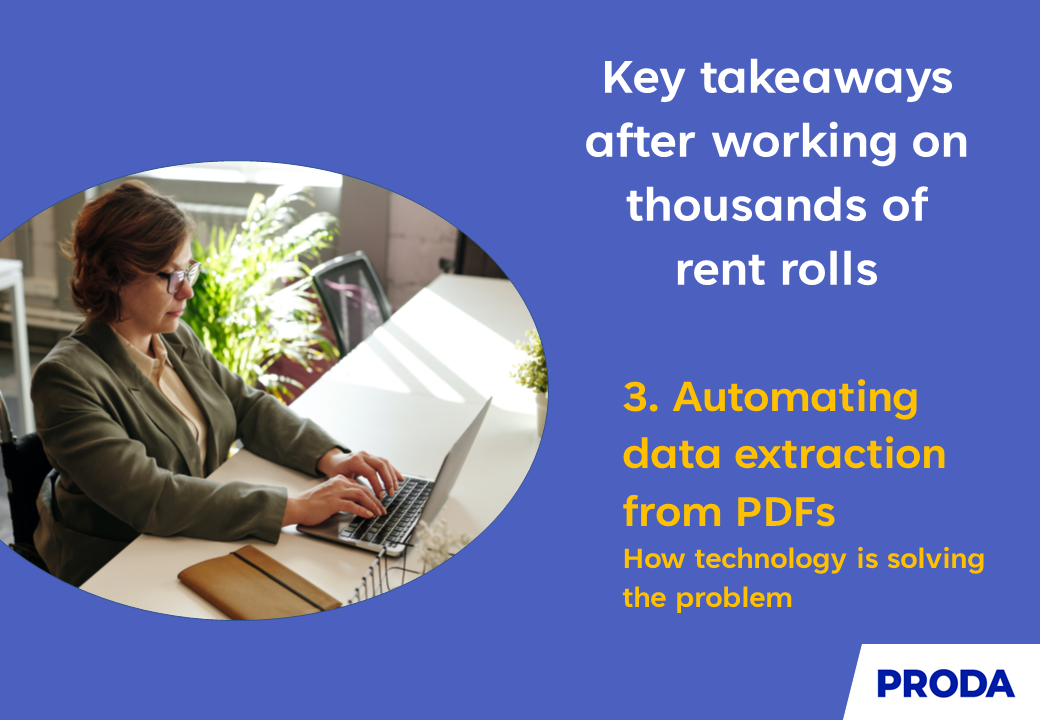In our latest ‘Leaders in Property and Technology’ blog, we spoke to Spencer Levy, Global Client Strategist and Senior Economic Advisor at CBRE, one of the largest companies in CRE providing comprehensive real estate services on a global scale.
PRODA: Can you tell us a little bit about your background and your role at CBRE?
I’ve been in real estate for about 28 years – as a lawyer, as a banker and as a leader at CBRE now for close to 17 years. My current role at CBRE is as a global client strategist and senior economic advisor – meeting with our largest clients on both the investor and the occupier side every day, either one-on-one or group settings or speaking with them on the podcast for CBRE, which I host, trying to talk about the most important issues of the day and giving them some advice that can help.
PRODA: What do you see as the challenges currently facing the commercial real estate market?
The commercial real estate market right now is really the tale of two worlds. World number one is the capital markets world and the second world is the fundamentals world.
The capital markets world is very difficult right now, not just because of the rising interest rates, but because the market isn’t quite convinced yet that they know when the rise is going to end. Most people think it’s probably close to the end, certainly here in the United States, maybe a little bit behind that in the UK and in Europe.
But until we have certainty on the cost of capital and then seeing the cost come down, which we expect late this year or early next year, it’s going to be very difficult to finance transactions and valuing transactions.
From the fundamental side, things are much brighter because across most asset classes – including a fair segment of office, I might add – you are seeing excellent fundamentals. Obviously, the best asset classes right now are the ones that have been the best for the last several years, including industrial and apartments or multifamily. But there are some asset classes that traditionally were underperformers in down markets, including retail and hotels. And those are performing exceptionally well, too.
And then you have all these forms of operational real estate – including data centres, senior housing student housing, single family rental – all performing well. The big fundamental question mark right now is office. Though we are seeing great performance in the best office buildings in the best submarkets, it’s that other category of the lesser office buildings and lesser submarkets where there needs to be some solution on how those things are going to go forward.
PRODA: In your experience, what are the most significant trends then shaping the future of commercial real estate?
In the immediate future – in the next 18 months or so – you’re going to have the cost of capital as the number-one issue. Until we see a significant drop in it, you’re going to see somewhat of a locked capital markets environment. It’s going to get better over that 18-month period. It’s not going to happen like a flood, but it’s going to slowly get better as the bid-ask rate closes.
The longer-term future is going to be whether we’re going to see a return not just to the office but to cities overall because we want to see economic activity in retail, multifamily and in every asset class. The bottom line is foot traffic is coming back to vibrant cities where you would expect it to come back in these ‘live, work, play’ areas.
But are people going to go back into the offices in the cities or in the same areas of those cities? I do see some of the submarkets that are going to be the most popular are going to change. You take a city like Boston where the seaport is now the hottest area in town, but the financial district is struggling. And I think that’s a tale you’ll see in a lot of other cities where the traditional central business districts are down.
But some of these emerging new submarkets are doing incredibly well because they have more of this ‘live, work, play’ type of environment. They often have a university base and an entertainment base that draws not only the potential office workers but tourists and other folks to the area, which brings life and vibrancy to the region.
PRODA: Moving on to the technology side, is it transforming commercial real estate and what are we discovering?
We’re still light years behind most other industries because of our data and that’s because each building is unique. Getting the right data, the best data, is very difficult, which makes predictive modelling not as predictive as something that has a better base, as they have in other industries.
The commercial real estate demographics is probably the most important issue when you’re looking at where people are going to go to live, work and play. But if you’re an occupier, where am I going to put my new facility so I can find labour? Because labour is the number one issue in the world, or the lack thereof. There’s better data outside real estate that can help achieve more accurate predictions for labour. Although there are efforts to develop predictive modelling in commercial real estate, I think it’s still at its early stages.
From the physical side, the internet of things (IoT), I think we’re in very good shape there. But physical occupancy doesn’t measure the magic thing, which is productivity. We might get to efficiency. We’re not getting to productivity. It’s incredibly difficult to measure and I still don’t see tools within our industry to do that.
For other forms of technological innovation, such as sustainability, things have gotten a lot better when it comes to alternative power sources of solar, wind, EV charging, and so on as they’re cheaper and more efficient to use.
PRODA: How important is data in your line of work? In your opinion, what part does data play in commercial real estate?
There are two ends to the spectrum. On the one end is the camp that believes that data is the new oil. At the other end is that this is a relationship business. The biggest deals get done because of relationships as much as they get done because the data says do this deal. And I think that’s what commercial real estate is. It’s somewhere in between the two. It’s not pure data and it’s certainly not pure relationship, but it’s got a lot.
Our business – both from a predictive standpoint for investment and or for where you want to locate your business – it has physical aspects as it relates to certain asset types, like datacentres. But then you have this whole relationship networking aspect, which is where I’ve seen, quite candidly, the most significant transactions done.
PRODA: What’s the one technological event you’ve seen that’s had the greatest impact on commercial real estate?
Virtual work. I’d say this is clearly the biggest disruption in my career. There’s plenty of work you can do without being in the office in person. I’m not going to deny that hybrid isn’t the future. There’s a lot of advantage to it and I don’t think the five-day week in the office is ever coming back, but what I do think is coming back is more people. I don’t think we’ve reached the new normal yet of how many people are going to come in because I think people are going to recognise the value of face-to-face time.
It’s a real balancing act – utility versus productivity. You certainly want people to maximise their personal utility, which is a combination of their work and life satisfaction. But as an employer, you want to maximise your employees’ productivity. I’m not sure that we’ve found that right balance yet.
PRODA: Any final thoughts?
If I could throw one very macro comment out there to all your readers who are earlier in their careers and haven’t seen markets quite like the one that we’re experiencing at the moment: use this time in this market where things are tough from a capital markets (and other) perspective to network, to communicate with your clients, to learn.
Because this is the time you’re going to learn more than in the good times when cap rates are compressing and everybody’s a genius. But when they’re not compressing, the people that will learn the most are the people who find unique and value-added ways to be a better property or asset manager, and technology is one of the ways you can do it.
Many thanks to Spencer for taking the time to speak with us. We’ll be back soon with another post as we continue to speak to leaders across the industry.
If you would like to learn more about PRODA, book a demo or contact us.




